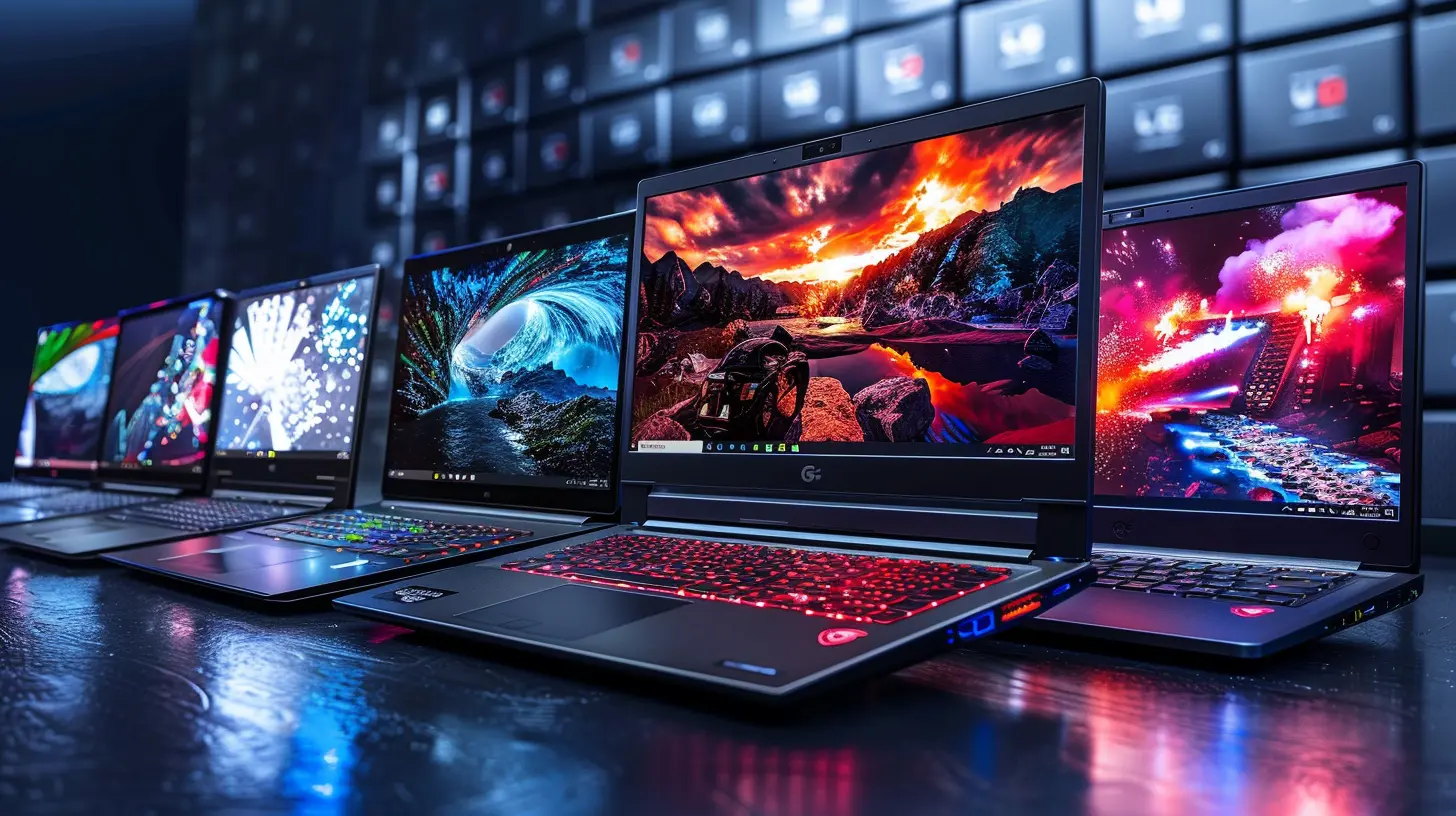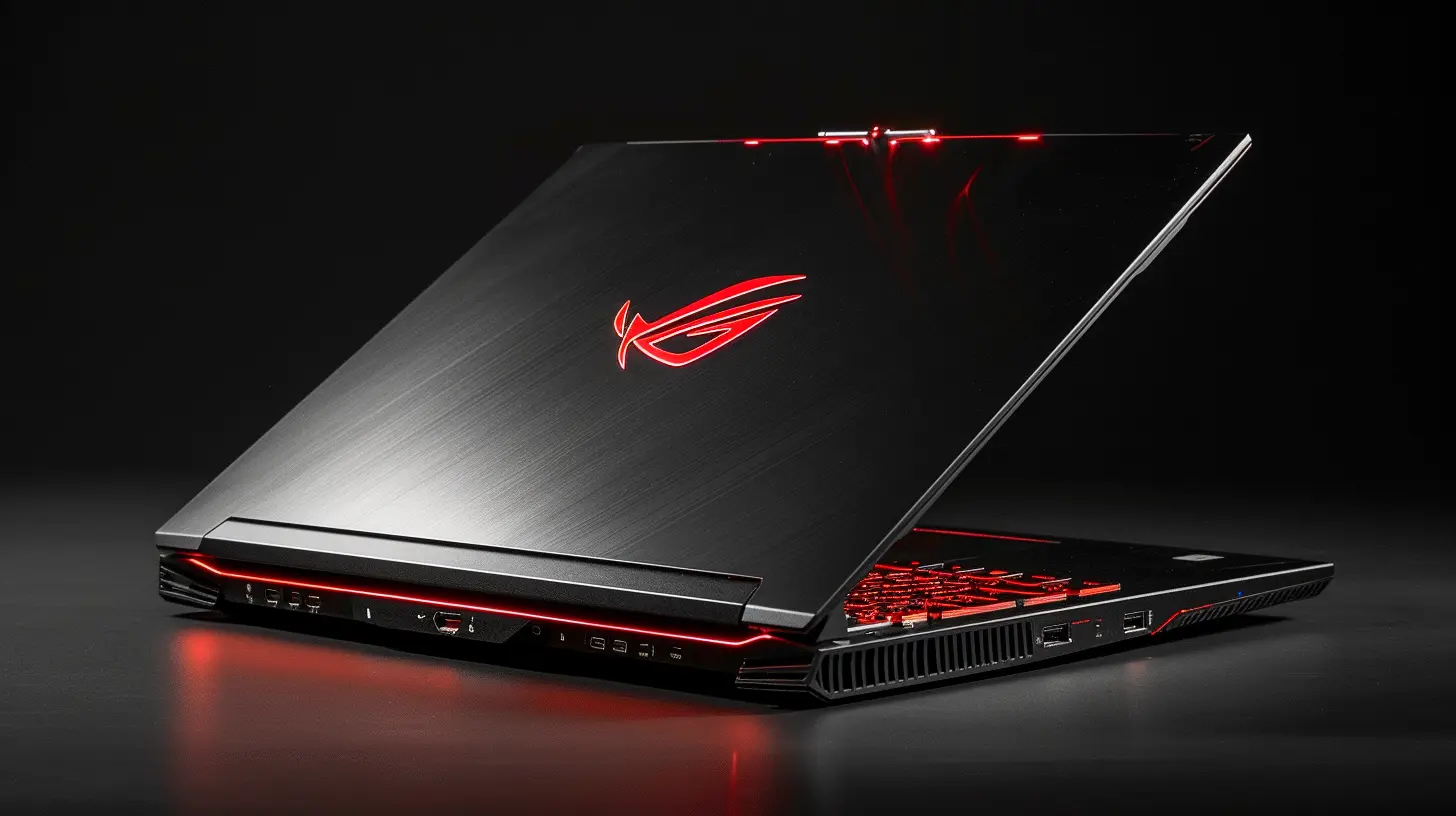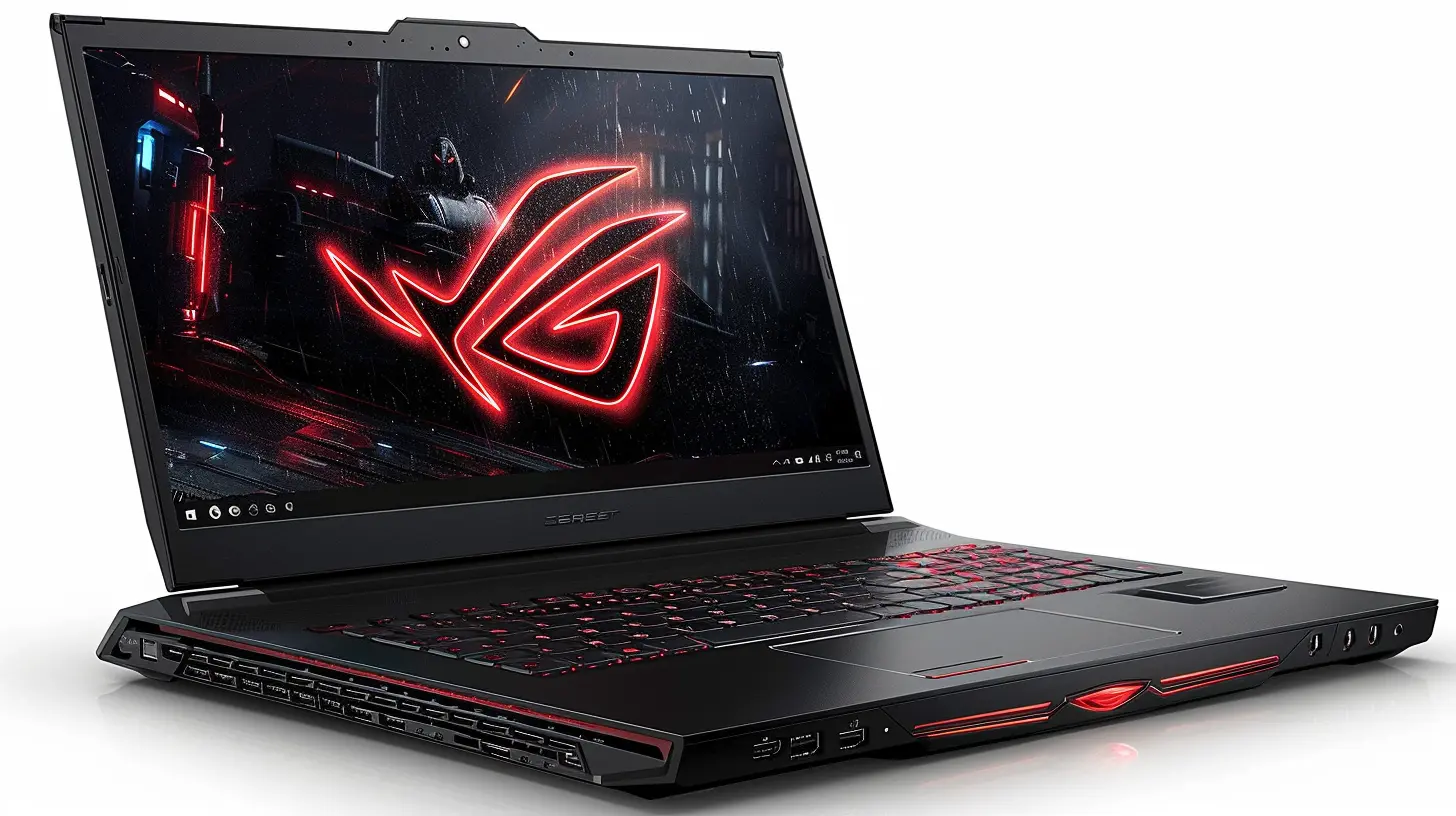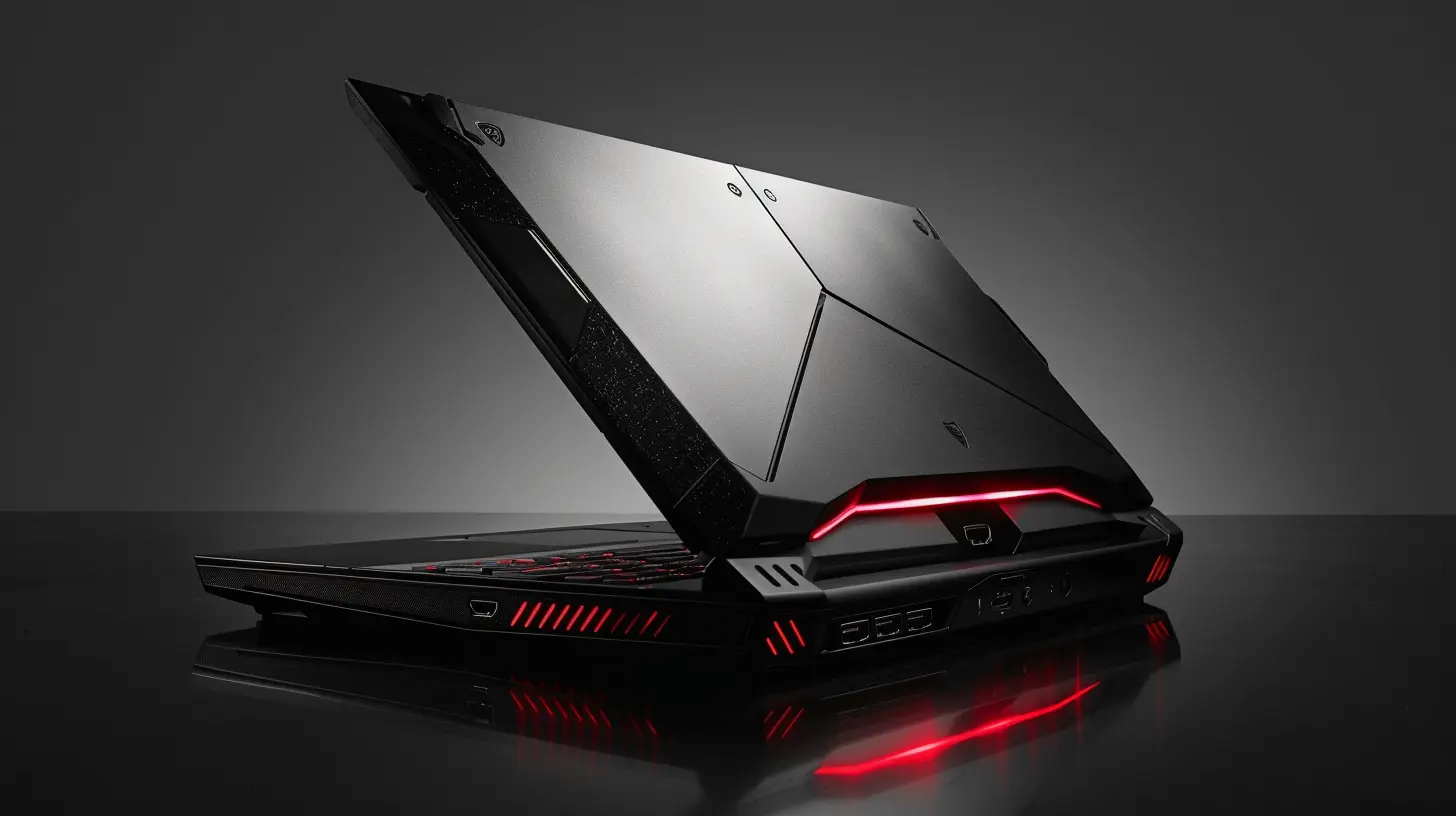How to Choose the Perfect Gaming Laptop for Your Needs
6 July 2025
Choosing the perfect gaming laptop can be a bit like navigating a digital minefield. You’ve got flashy designs, impressive-sounding specs, and prices that range from “I can afford that” to “maybe I’ll sell a kidney.” But here’s the thing—what works for someone else might not work for you. Gaming laptops aren’t a one-size-fits-all deal. It’s all about finding the right balance between performance, portability, and budget. So, how do you figure out what's right for you? Let’s break it down, step by step.

1. Know Your Gaming Style
Before diving into the nitty-gritty of specs and features, let’s take a second to think about how you game. Are you a casual gamer who likes to unwind with a few rounds of Fortnite or Minecraft? Or are you the competitive type, looking to max out your settings in titles like Cyberpunk 2077 or Call of Duty: Warzone? Maybe you’re somewhere in between.Your gaming style plays a huge role in what kind of laptop you should get. If you’re just dipping your toes into the gaming world, you don’t need the most expensive, high-end laptop out there. But if you're after serious, high-octane gaming experiences, you’ll want something more powerful.
Casual vs. Hardcore Gaming
- Casual Gamers: A budget-friendly laptop with a mid-range GPU and decent CPU should get the job done. You won’t need to max out every feature, and 60 FPS (Frames Per Second) in 1080p will likely be more than enough for a smooth experience.- Hardcore Gamers: If you’re all about ultra settings, high refresh rates, and future-proofing, then you’ll want to invest in a laptop that has a top-tier GPU, a powerful CPU, and a display that can handle it all.

2. Graphics Card (GPU) – The Heart of Gaming Performance
Let’s be real, the Graphics Processing Unit (GPU) is the cornerstone of any gaming laptop. It’s what makes your games look incredible, run smoothly, and avoid turning into a pixelated mess. Without a good GPU, even the simplest games can struggle.What to Look for in a GPU
Here are a few common GPUs you’ll come across when shopping for a gaming laptop:- NVIDIA GeForce GTX 1650 / 1660 Ti: These are great for entry-level gaming. They’ll handle most games at 1080p with medium settings and will offer a smooth experience for casual gamers.
- NVIDIA GeForce RTX 2060 / 2070: These GPUs are a step up, offering better performance and the ability to enjoy some games on high settings at 1080p or even 1440p. Plus, they support ray tracing, which can make your games look ultra-realistic.
- NVIDIA GeForce RTX 3060 / 3070 / 3080: If you want the best of the best and money isn’t an issue, these GPUs offer top-tier performance. You’ll be able to run the latest AAA games at ultra settings, and even in 4K if you have a laptop with that kind of display.
In general, NVIDIA GPUs tend to dominate the gaming laptop market, but don’t sleep on AMD Radeon cards either. They’ve been making waves recently, offering solid performance for a lower cost.

3. CPU – The Brain Behind the Brawn
While the GPU might be the star of the show, the Central Processing Unit (CPU) plays a critical supporting role. Think of it as the brain that ensures everything runs smoothly behind the scenes. For gaming, a decent CPU is essential, but you don’t need to go all out unless you’re doing more than just gaming (like video editing or streaming).Intel vs. AMD
- Intel: Intel's i5 and i7 processors are popular choices for gamers. If you're on a budget, an i5 should be enough. But if you want something future-proof and capable of handling more intensive tasks, an i7 or i9 is the way to go.- AMD: AMD’s Ryzen 5 and Ryzen 7 processors are fantastic options, often offering better performance at a lower price point than Intel's counterparts. AMD also tends to excel in multi-threaded tasks, making it a better choice for those who do more than just game.
Number of Cores
For most gamers, a quad-core processor is typically enough. However, if you’re into more demanding games or multitasking (like gaming while streaming), you might want to opt for a hexa-core or octa-core processor.
4. RAM – Because Multitasking Matters
Random Access Memory (RAM) is a bit like your laptop’s short-term memory. The more RAM you have, the more your laptop can handle – like running multiple programs or having a bunch of browser tabs open while gaming.How Much RAM Do You Need?
- 8GB: This is the bare minimum for gaming these days. It'll handle most games at lower settings, but you might experience some slowdown if you try to multitask.- 16GB: This is the sweet spot for most gamers. It’ll allow you to run your games smoothly and multitask without worrying about performance drops.
- 32GB: Overkill for most gamers, but if you’re a content creator or do a lot of video editing or 3D rendering alongside gaming, more RAM never hurts.
5. Storage – SSD vs. HDD
One of the biggest upgrades you can make to a gaming laptop is choosing the right kind of storage. There are two main types: Hard Disk Drive (HDD) and Solid State Drive (SSD).SSDs: Speed is King
SSDs are way faster than traditional HDDs. They’ll cut down loading times, make your laptop boot up faster, and generally improve overall performance. If you're serious about gaming, an SSD is a must.HDDs: The Budget Option
HDDs offer more storage at a lower price, but they’re much slower. If you need a ton of space for large game libraries but don’t want to break the bank, you might consider a mix of both—an SSD for your operating system and games you play often, and an HDD for everything else.Ideal Setup
The ideal setup for most gamers is a combination of both: a 256GB or 512GB SSD for your main games and operating system, and a 1TB HDD for bulk storage.
6. Display – Size, Resolution, and Refresh Rates
What good is a powerful gaming laptop if its display doesn’t do it justice? Picking the right screen is essential for an immersive gaming experience.Screen Size
- 15-inch: The sweet spot for portability and performance. It’s big enough to enjoy your games without making your laptop bulky or heavy.- 17-inch: If you don’t plan on moving your laptop around much, a 17-inch screen will provide a more immersive experience. Just be ready for a bulkier machine.
Resolution
- 1080p (Full HD): This is the standard resolution for most gaming laptops, and for good reason. It strikes a nice balance between performance and visual quality.- 1440p (QHD): If you're after sharper visuals and have the hardware to support it, a 1440p display can take your gaming experience up a notch.
- 4K (UHD): While 4K looks stunning, keep in mind that it requires a beastly GPU to run games smoothly at this resolution. Also, on a smaller laptop screen, the difference between 1440p and 4K won’t be as noticeable as on a larger display.
Refresh Rate
If you’re into fast-paced, competitive games, a higher refresh rate is a game-changer. Standard laptops usually come with a 60Hz display, but gaming laptops often offer 120Hz, 144Hz, or even 240Hz panels. A higher refresh rate means smoother gameplay, which can be the difference between winning or losing in a fast-paced shooter.7. Battery Life – Lower Your Expectations
Let’s be honest: gaming laptops aren’t known for their stellar battery life. When you’re gaming, your laptop’s battery will drain like crazy. Expect to get anywhere from 2 to 4 hours of gaming on a single charge. If you’re just doing light work or browsing, you might get around 6 to 8 hours.Pro Tip: Always Game Plugged In
Gaming laptops are designed to perform best when they’re plugged in. Gaming on battery power will usually result in lower performance, as the laptop throttles the GPU and CPU to save energy.
8. Portability and Build Quality
If you plan on carrying your gaming laptop to LAN parties or taking it on trips, portability matters. Some gaming laptops are sleek and lightweight, while others are heavy, desktop-replacement beasts.- Thin and Light: Laptops like the Razer Blade 15 or Asus Zephyrus G14 offer solid gaming performance in a slim and portable package.
- Thicker, Desktop Replacements: Laptops like the Alienware Area-51m are powerhouses, but they’re heavy and bulky. These are best for gamers who don’t mind sacrificing portability for raw power.
9. Price – Budget Wisely
Gaming laptops can get expensive, but you don’t need to spend a fortune to get a decent machine. Here’s a rough guide to what you can expect:- $800 to $1,200: Entry-level gaming laptops that can handle most games on medium settings.
- $1,200 to $2,000: Mid-range laptops that can run most games on high settings and offer a good balance of performance and price.
- $2,000 and up: High-end gaming laptops with top-tier GPUs, CPUs, and displays. These are for gamers who want the best of the best.
Final Thoughts
Choosing the perfect gaming laptop is all about balancing what you need with what you can afford. Focus on the core components—GPU, CPU, RAM, and storage—because they’ll have the biggest impact on your gaming experience. And remember, no matter what laptop you choose, gaming is all about having fun. So whether you’re chasing high frame rates or just enjoying the latest indie game, make sure your laptop feels right for you.all images in this post were generated using AI tools
Category:
Gaming LaptopsAuthor:

Adeline Taylor
Discussion
rate this article
2 comments
Aaron Duke
Thank you for the helpful tips—excited to find my perfect laptop!
November 17, 2025 at 12:15 PM

Adeline Taylor
You're welcome! Happy gaming, and good luck with your search!
Presley Potter
Performance, portability, and price—find your gaming trifecta!
July 27, 2025 at 1:02 PM

Adeline Taylor
Absolutely! Balancing performance, portability, and price is key to finding the perfect gaming laptop that fits your lifestyle and budget.


